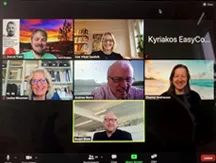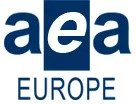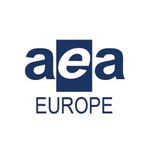Welcome to
The Association for Educational Assessment – Europe
The foremost association for assessment professionals throughout Europe.
What We Offer
AEA-Europe offers its members a range of opportunities to network with each other, sharing news, debate and research. At institution level, the association provides a forum for international liaison and co-operation.

Accreditation
Become an AEA-Europe Fellow, Practitioner or Associate.

SIG Membership
Join one of AEA-E’s Special Interest Groups.

Awards
Get recognition for your work and research.
26th Annual Conference
The Hague, Netherlands
05-08 November, 2025
Designing tomorrow’s assessment landscape for positive impact on learning
AEA Europe 2025
News
Keep in touch with what’s happening.
26th Annual Conference of the Association for Educational Assessment – Europe
The AEA-Europe 2025 conference highlighted innovation in assessment and global collaboration for positive educational impact.
Interview
SPC Chair Stuart Shaw shares insights across his interview, discussing the Scientific Programme Committee’s vital role, this year’s call for submissions
Interview
Rebecca Hamer, a member of the IB Conference Organizing Committee, offers her insights into AEA Europe 2025 and what participants can look forward to.
Follow Us
Follow us on Instagram
Calendar of Events
Nothing from 19th November 2025 to 18th November 2026.
Our Blog
Join the conversation and contribute to our blog
Assessment culture: looking forward or looking back?
While students around the world received last summer their report cards and diplomas, in Switzerland, the Federation of Swiss Enterprises (Economiesuisse[1]) recently took a stand on the issue of grades, in a policy paper entitled “Debate on grades at school: we’ve lost our way…”.
Should we trust teachers’ practices or standardized tests?
While students around the world received last summer their report cards and diplomas, in Switzerland, the Federation of Swiss Enterprises (Economiesuisse[1]) recently took a stand on the issue of grades, in a policy paper entitled “Debate on grades at school: we’ve lost our way…”.
What should the word ‘holistic’ imply?
Recent Holistic Assessment SIG seminars have prompted reflection on what we mean by the term ‘holistic’, a word often employed in education as a token of approval without clear definition of what it means in practice.





